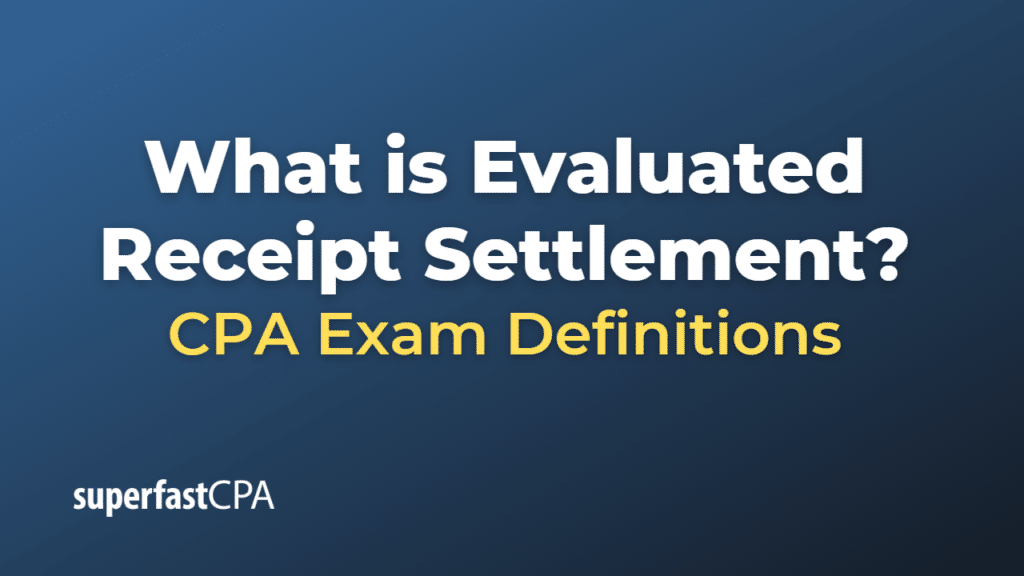Evaluated Receipt Settlement
Evaluated Receipt Settlement (ERS) is a process of paying for goods or services from a supplier that completely eliminates the need for the supplier to submit an invoice for the goods delivered. Instead, payment is automatically made based on the details of a purchase order, the receipt of goods, and the agreed-upon price.
Here’s a simple breakdown of how it works:
- Purchase Order Issuance: The buyer issues a purchase order detailing the goods or services they want, including the quantities, specifications, and prices. The supplier acknowledges and accepts the purchase order.
- Goods Delivery: The supplier delivers the goods or services according to the terms of the purchase order. The buyer checks that the delivered goods or services match the purchase order in terms of quantity and quality.
- Automatic Payment: The buyer’s system automatically matches the receipt with the purchase order. If everything matches up correctly, payment is automatically triggered based on the agreed-upon terms in the purchase order.
ERS has several benefits, including streamlining the payment process, reducing paperwork, improving accuracy, and speeding up the payment cycle. However, it also requires a high level of trust and accurate record-keeping between the buyer and supplier, as well as robust systems to handle the automatic matching and payment processes.
Example of Evaluated Receipt Settlement
Let’s take an example of a manufacturing company named AutoMakers that uses Evaluated Receipt Settlement (ERS) in its dealings with a supplier of car parts, named PartsPlus.
- Purchase Order Issuance: AutoMakers places a purchase order for 1,000 units of a specific part at a unit price of $50. This order, along with the agreed prices, is acknowledged and accepted by PartsPlus.
- Goods Delivery: PartsPlus delivers the 1,000 units to AutoMakers as per the agreed schedule. AutoMakers checks the delivered parts, verifying that they’ve received the correct quantity and that the parts meet their quality specifications.
- Automatic Payment: AutoMakers’ procurement system automatically matches the goods receipt with the initial purchase order. Seeing that the received quantity and quality aligns with the order, it triggers a payment of $50,000 (1,000 units * $50/unit) to PartsPlus. No traditional invoice is required from PartsPlus.
So, by using ERS, AutoMakers and PartsPlus can streamline their transaction process, reducing the need for extra paperwork (like invoicing) and potentially speeding up the payment process. However, this requires robust systems on both ends and a strong trust-based relationship between AutoMakers and PartsPlus.













